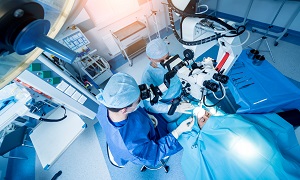Best Brain Cancer Treatment Doctors in India
Here are the most reputed brain surgeons in India for the treatment of brain cancers/ brain cancer surgeries.
Best Brain Cancer Treatment Hospitals in India
Reliance Hospital, Mumbai
- City: Mumbai, India
Hospital Highlights:
- Reliance Hospital is one of the best super-specialty care hospitals in Navi Mumbai.
- The main purpose of this hospital is to become a trustworthy place for the best health and hope for society. The hospital is well connected to the suburbs of Mumbai and Navi Mumbai.
- The hospital has various specialty departments, viz., Accident & Emergency, Anesthesiology, Dental Services, Dermatology, Diabetology, Dietetics Nutrition, Endocrinology, ENT, Gastroenterology, General Surgery, Gynaecology And Obstetrics, Hepato Pancreato Biliary Surgery, Infectious Disease, Internal Medicine, Interventional Radiology, Laboratory Medicine, Minimal Access Laparoscopic Surgery, Nephrology, Neurosciences, Opthalmology, Orthopaedics, Paediatrics, Pain Management Palliative Care, Physical Medicine Rehabilitation, Plastic And Reconstructive Surgery, Psychiatry, Pulmonary Medicine, Radiology, Rheumatology, Transplant, Urology Andrology, Vascular Surgery
Lilavati Hospital & Research Centre, Mumbai
- City: Mumbai, India
Hospital Highlights:
- Lilavati Hospital & Research Centre is India’s premier multi-speciality tertiary care hospital and has been recognised as a global medical excellence centre.
- Lilavati Hospital & Research Centre has built an unrivalled level of trust with its patients over the years, thanks to a solid foundation that comprises cutting-edge facilities, the best medical competence, research, education, and charity endeavours.
- The hospital is quite proud of the fact that it now serves patients from all kinds of backgrounds, not just from the United States but from all around the world.
- The hospital has a total of 323 beds, one of the largest Intensive Care Units (ICUs), 12 Operation Theatres with modern amenities, over 300 consultants, and almost 1,800 personnel.
Venkateshwar Hospital, Dwarka, New Delhi
- City: New Delhi, India
Hospital Highlights:
- State-of-the-art technology and devoted healthcare professionals have been brought together under one roof at Venkateshwar Hospital to provide genuine medical care. The hospital’s professionals work together as a team to deliver the best possible treatment to their patients, using the most sophisticated equipment and information technology.
- Venkateshwar Hospital’s mission is to attain global excellence in healthcare by employing evidence-based, ethical clinical practices and cutting-edge technology by a team of highly skilled experts.
MGM Healthcare, Chennai
- City: Chennai, India
Hospital Highlights:
- Located in Chennai, India, MGM Healthcare is a top multispecialty hospital that provides all medical services under one roof.
- Since its founding in 2019, MGM Healthcare has quickly become a leading national referral centre, creating several innovative flagship initiatives.
- MGM Healthcare combines next-generation medical and digital technologies to provide better patient results.
- With 12 centres of excellence, more than 400 inpatient beds, 100 intensive care unit beds, and 24/7 emergency care, MGM Healthcare leaves no chance in redefining the patient experience in Chennai.
- MGM Healthcare boasts 250+ expert doctors across 30+ departments, including Cardiology, Pulmonology, Neurology, Obstetrics & Gynaecology, and more.
- They house 12 specialized Centres of Excellence, including Neurosciences, Orthopaedics, and Multi-Organ Transplantation.
- Their team of doctors, nurses, and paramedics works together to give every patient individualized treatment.
Brain Cancer
Brain cancer is a condition of the brain in which cancer cells arise in the brain tissue. These cells can grow to form a mass of cancer tissue or tumor, which can interfere with the functions of the brain.
Tumors which are composed of cancer cells are known as malignant tumors, and those which are composed of mostly noncancerous cells are known as benign tumors. Cancer cells that develop from the brain tissue are termed as primary brain tumors, while tumors that have spread from other body sites to the brain are known as metastatic or secondary brain tumors.
Signs & symptoms
The signs and symptoms of brain cancer generally depend on the size and location of the tumor.
Some of the common symptoms include:
- Headaches that are generally worse in the morning
- Nausea
- Difficulty walking
- A lack of coordination
- A lack of balance
- Vomiting
- Difficulty thinking
- Memory lapses
- Speech problems
- Vision problems
- Muscle jerking
- Muscle twitching
- Changes in one’s personality
- Numbness or tingling in the arms or legs
- Abnormal eye movements
- Unexplained passing out
- Seizures
- Drowsiness
It is notable that some of the symptoms of brain cancer are also caused by other, less serious conditions and therefore, if you experience these symptoms, there is no need to panic, but it might be a good idea to consult your doctor to evaluate your symptoms just in case.
Causes & risk factors
What exactly leads to brain cancer is unknown. However, certain factors are known to increase the risk of brain cancer, which includes high doses of ionizing radiation and having a family history of brain cancer. Sometimes, cancer in another part of your body also increases the risk. Cancers in the lung, breast, kidney, bladder, or melanoma, a type of skin cancer, are known to spread to the brain commonly.
Other factors that are related to developing brain cancer include:
- Long-term smoking
- Increased age
- Exposure to herbicides, pesticides, and fertilizer
- Working with cancer-causing elements like lead, plastic, petroleum, etc.
- Having an Epstein-Barr virus infection, or mononucleosis
Diagnosis
Physical examination
Imaging tests
Most frequently, a CT scan is generally used for the diagnosis of brain cancer. This test resembles a series of X-rays, and in some cases, a dye also needs to be injected into a vein for better images of some of the internal brain structures. MRI is also popular due to its high sensitivity for detecting anatomic changes in the brain. This test is even known to detect structures of the brain better than a CT scan.
Biopsy
Other tests might also be ordered by your healthcare provider if they think it is necessary to determine the patient’s state of health or to detect any other health problems.
Treatment
There are various types of treatments for brain cancer. Treatment for primary brain cancer might be different than treatment for metastatic brain tumors.
Generally, treatments for metastatic cancer are more focused on the original cancer site. Depending on the type, size, and location of the tumor, you might receive one or more treatments. Some of the treatment options include:
Surgery
Radiation Therapy
Chemotherapy
Other Medications
Rehabilitation
Prevention
There is no known way for preventing brain cancers. However, early diagnosis as well as treatment is known drastically reduce the risk of metastatic brain tumors. You are also at a lower risk of developing cancer if you:
- Avoid exposure to pesticides and insecticides
- Avoid unnecessary exposure to radiation
- Avoid exposure to any kind of carcinogenic chemicals
- Avoid smoking
However, the exact causes that initiate brain cancer, especially primary brain cancer, is still not known to modern science. Therefore, specific preventive measures are still unknown.











